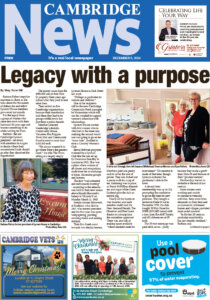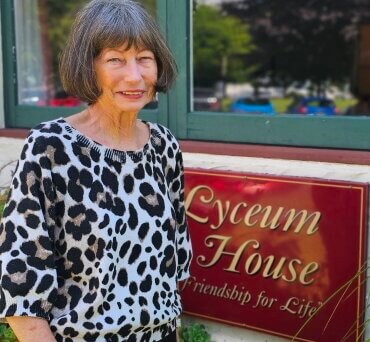
Barbara Fisher – Lyceum President.
Barbara Fisher keeps her emotions in check as she talks about the thousands of dollars she and fellow Lyceum House members gave away last month.

Last hurrah: Lyceum House committee, back row from left: Kaye Pollock, Florence Monson, Daphne Caddie, Susanne Whitehead, patron Jocelyn Cooney, Glenda Little, Pat Harbutt. Front: Lyndsay Mason, Mary Shaw, president Barbara Fisher. Dianne Murdoch was absent. Photo: Supplied.
It is the legacy from a group of women who came into town with their husbands 84 years ago and wanted something to do while waiting for them.
Barbara – the last Cambridge Lyceum president – sat down with members in August to decide where their accumulated funds should go after they dissolved the organisation.
The money came from the $900,000 sale of their Dick St property three years ago minus what they paid in rent since then.
They settled on five Cambridge organisations because their constitution told them they had to be groups within town that provided a public benefit.
Members selected Cambridge Lifeskills, Community House, Volunteer Fire Brigade, Town Hall and Community Fund to receive more than $150,000 each.
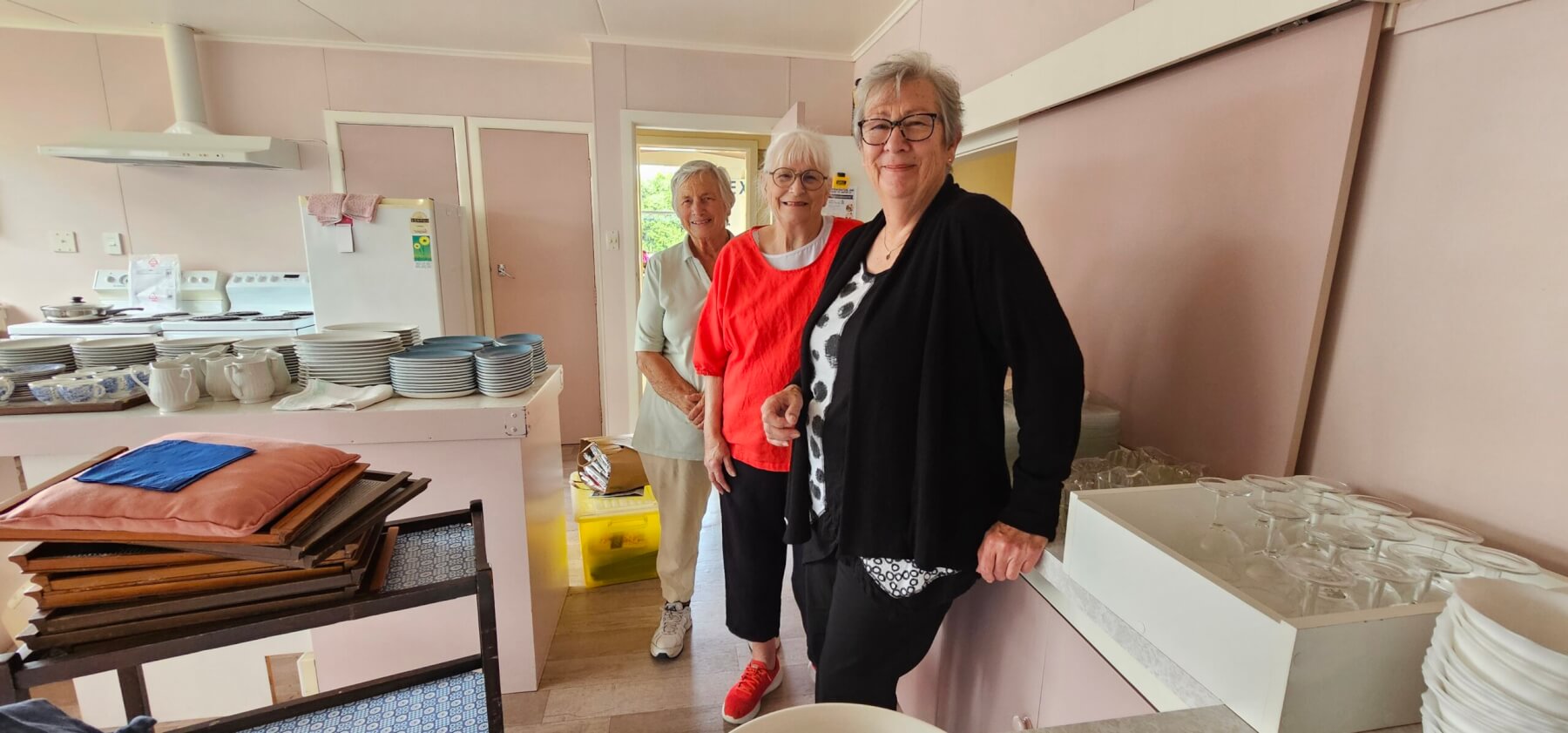
A lot to sort through, from left Susanne Whitehead, Kaye Pollock and Florence Monson. Photo: Mary Anne Gill
“We always wanted it to go where there’s the greatest need,” she tells The News, sitting in a largely empty Lyceum House in Dick Street last week.
“Perhaps in particular for women and children.”
One of the recipients will be the new Cambridge Community Fund managed by Momentum which will use the windfall to support women’s education with scholarships.
Lyceum House started with five women who in 1940 met in the street and, realising the second world war was going to go on for “some time”, decided to form a Country Women’s Club.
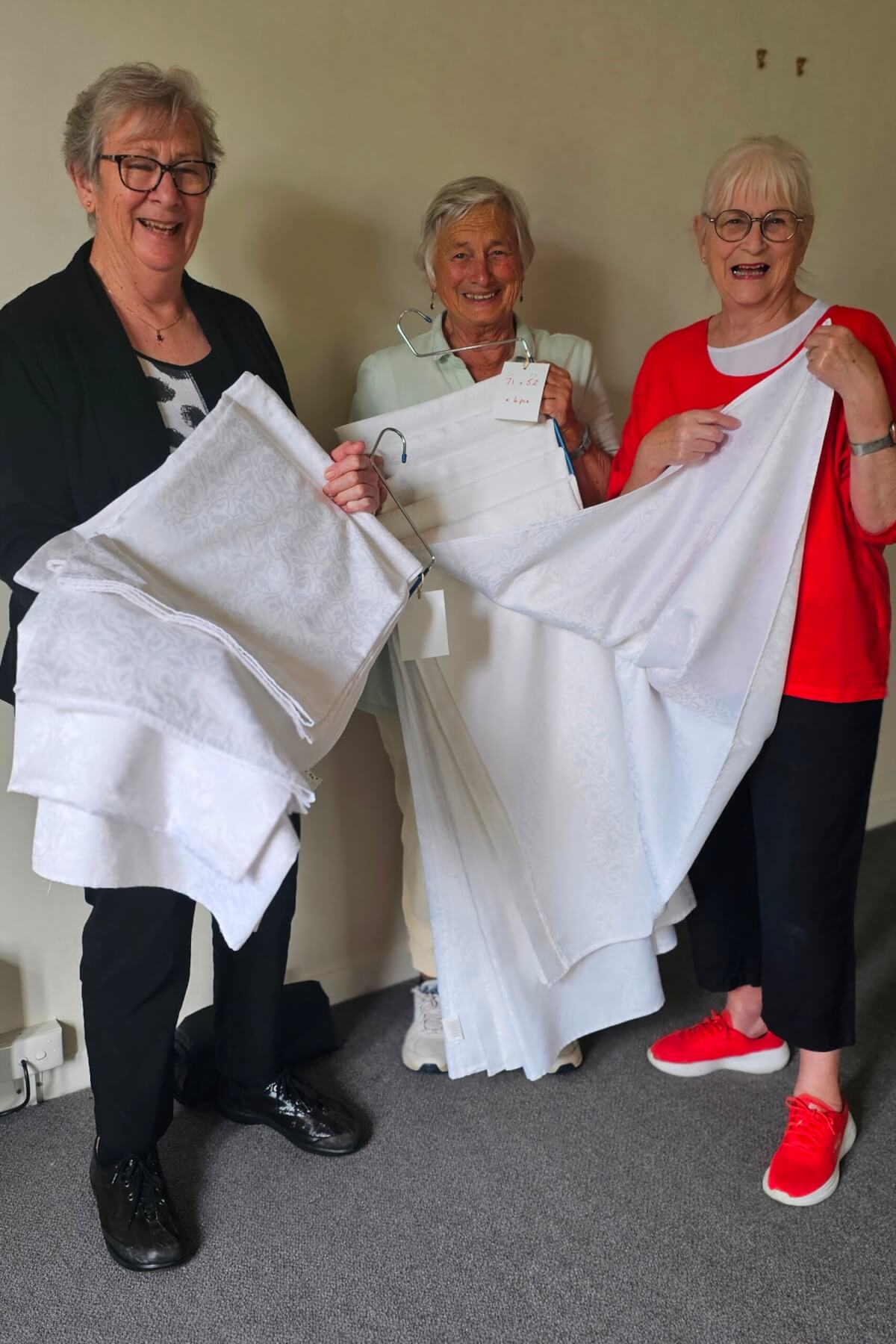
Anyone for a tablecloth? From left Florence Monson, Susanne Whitehead and Kaye Pollock. Photo: Mary Anne Gill
Rewa McEwan proposed it should be a Lyceum Club like the one set up by Constance Smedley in London in 1903. That was a place where women of all classes and occupations could meet for an exchange of ideas, discussion groups and lectures.
The first “well-attended and enthusiastic meeting” – according to the minutes – was held in their new rooms above Harold Horscroft’s bakery in Victoria St on Monday March 11, 1940.
Evelyn Salome Rishworth of Karāpiro, who died in 1967, was elected president and the first year was spent wallpapering, painting, covering chairs and making curtains.
Their first funds went towards two electric heaters. Members paid one penny each to cover the cost of power. They also forked out a penny each for a cup of tea. Rationing was in place, so Bessie McMillan donated tea and sugar while Claire Garland gave the club an electric jug.
Nearly all the furniture was donated, and each member could read the New Zealand Herald, The Observer and Free Lance thanks to subscriptions the committee approved. There was also talk of making space available “where menfold could be entertained.” No mention is made of that later, though Lyceum outlasted the gentlemen’s club in the town.
A decade later membership was up to 200, prompting the committee to go on the hunt for new premises. They bought a section in Duke St but in December 1953, the club bought 20 Dick Street for £5500 ($376,000 today) with a loan from the AMP Society and 481 debentures of £5 each.
The 25 year mortgage was paid off in seven – partly because they made a profit from Duke St and because of their “prudent natures”.
Membership started to dwindle at the end of last century.
More women were working and unable to commit to weekday activities, there were other demands on their time and an increase in retirement homes and villages provided more social contacts.
“In the last 20 years in particular membership has just steadily declined,” Barbara said.
She catches her breath when asked how she feels about being the last president and what Evelyn Rishworth would be thinking.
“Hopefully she’ll say Lyceum has served a good purpose for over 84 years. I would have thought she would be very proud.
“So many women have been through these doors and I’m a third generation Fisher member.”
Her aunt and grandmother also belonged to Lyceum.
When members met representatives from each of the trusts in October to discuss the legacy, the groups were astounded at the women’s generosity, she says.
Members decided each organisation would get the same amount.
“They had no idea how much money was involved but it’s thanks to the foresight of previous members.”
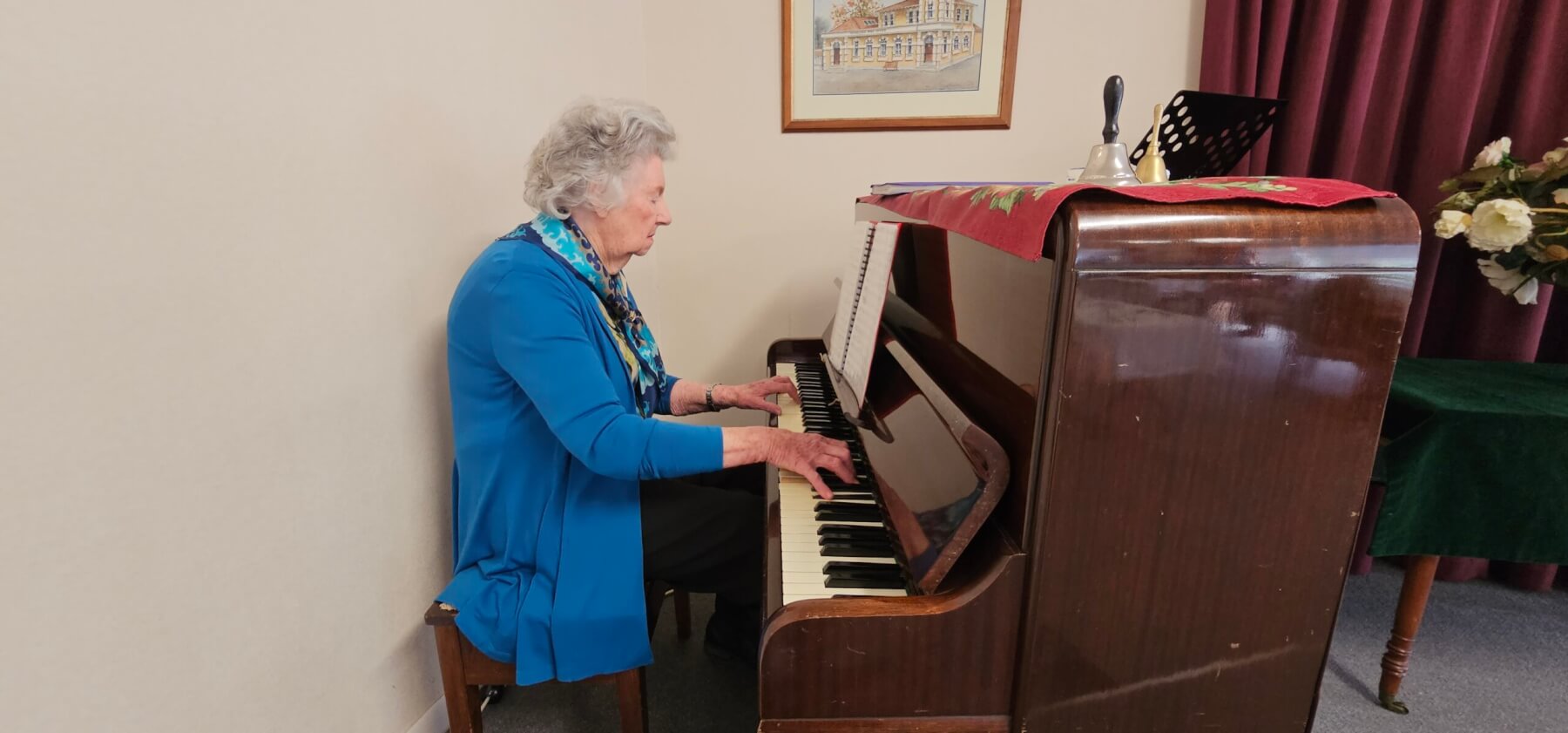
Judy McColl plays the piano at Cambridge Lyceum.
The chairs, crockery, silverware, glasses, tablecloths and odds and ends have either been sold or donated. Minutes, honours boards and other memorabilia have been donated to Cambridge Museum and the piano which provided the centrepiece for many a sing-along will go to Judy McColl, the member who has “tickled the ivories” in recent years.
Next Monday Barbara and the committee will pull the doors shut. They had their last hurrah on November 4 and will now meet at other functions. Most are now in their 80s.
It’s the end of an era – but Lyceum’s legacy will last forever.
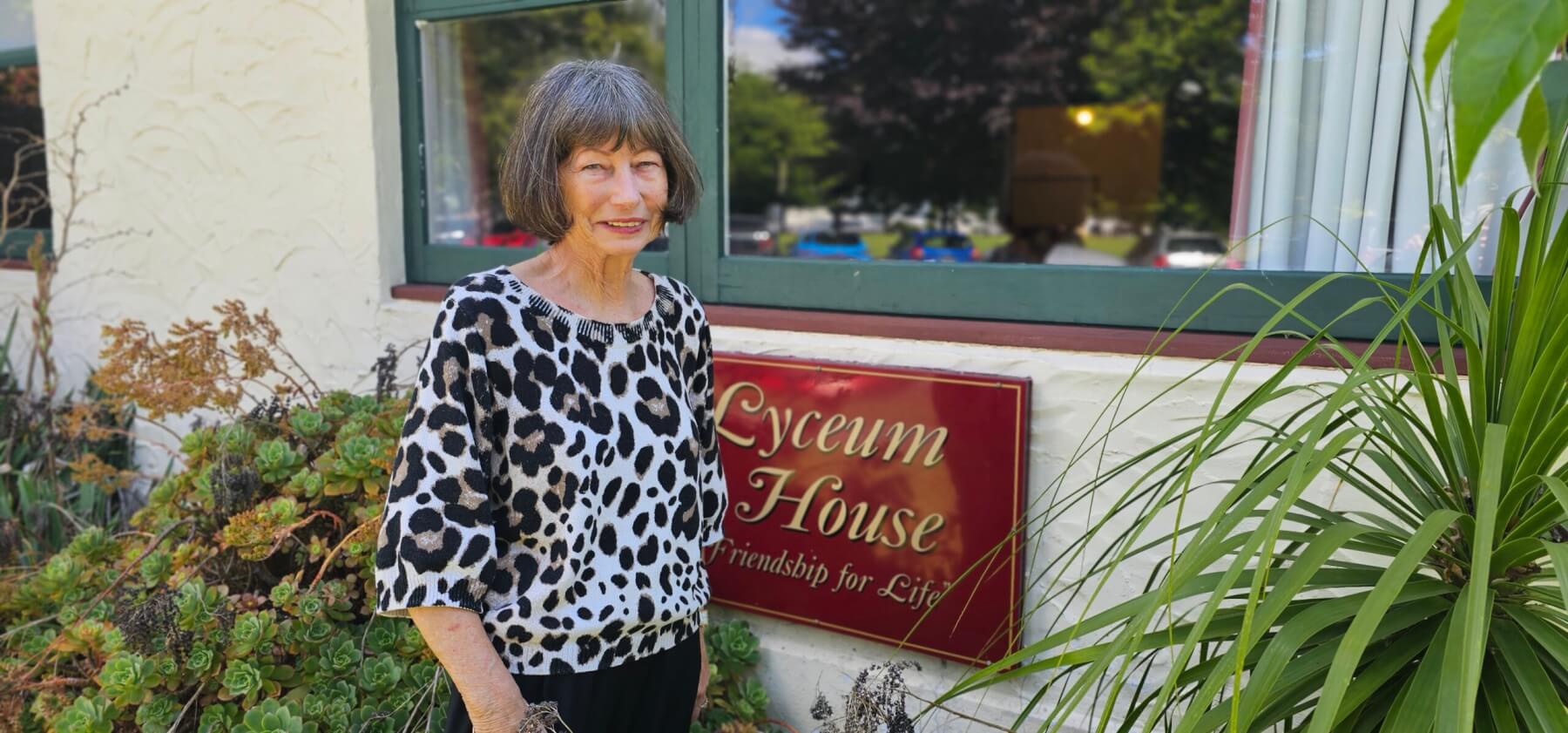
Barbara Fisher, the last president of Lyceum House in Cambridge. Photo: Mary Anne Gill.



